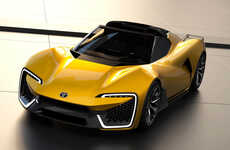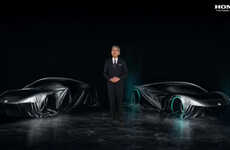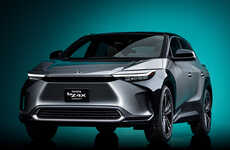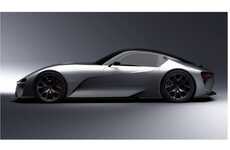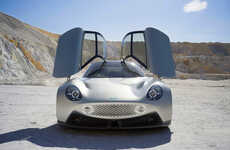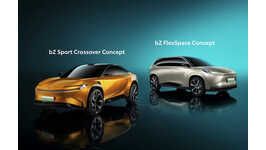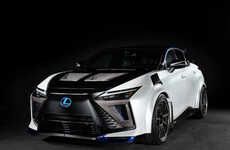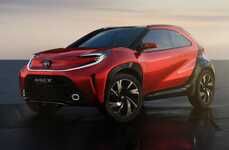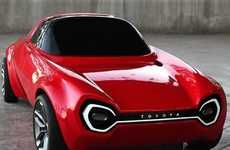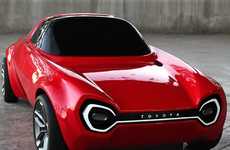
The Toyota Public Sports Concept is an EV Designed to Be Ownerless
Michael Hines — August 18, 2017 — Autos
References: behance.net & carbuzz
Those who fear what the future holds for the automobile industry should be comforted by the Toyota Public Sports Concept. Nobuhiko Honda's concept is an electric sports car that's designed to be driven. The designer doesn't imagine people owning this coupe. Instead, Honda pictures a world in which cars, at least the majority of them, are shared.
The electric car has a unique roof that opens like a clam shell to make ingress and egress easier. There's also a built-in AR simulator to help teach those who can't drive what it's like to be out on the road. While the Toyota Public Sports Concept will likely never see production Honda is certainly on the right path. Hopefully automaker's like Toyota are still building fun to drive cars once every new vehicle is electrified and meant to be shared.
The electric car has a unique roof that opens like a clam shell to make ingress and egress easier. There's also a built-in AR simulator to help teach those who can't drive what it's like to be out on the road. While the Toyota Public Sports Concept will likely never see production Honda is certainly on the right path. Hopefully automaker's like Toyota are still building fun to drive cars once every new vehicle is electrified and meant to be shared.
Trend Themes
1. Shared Mobility - The trend towards shared ownership and usage of vehicles, as seen in the idea of ownerless sports cars, presents opportunities for disruptive innovation in mobility services and platforms.
2. Electric Sports Cars - The growing popularity of electric sports cars creates potential for disruptive innovation in the automotive industry, as companies develop new technologies and designs for sustainable and high-performance electric vehicles.
3. Augmented Reality in Driving Education - The integration of augmented reality simulators in vehicles, as showcased in the Toyota Public Sports Concept, opens up possibilities for disruptive innovation in driver training and education.
Industry Implications
1. Automotive - The automotive industry can explore disruptive innovation in shared electric sports cars, creating new business models for mobility services.
2. Technology - The technology industry can contribute to disruptive innovation by developing advanced augmented reality simulators for driving education and training.
3. Sustainable Energy - The sustainable energy industry can drive disruptive innovation by developing electric sports cars that combine high performance with eco-friendly attributes, catering to the growing demand for sustainable transportation.
6.3
Score
Popularity
Activity
Freshness

